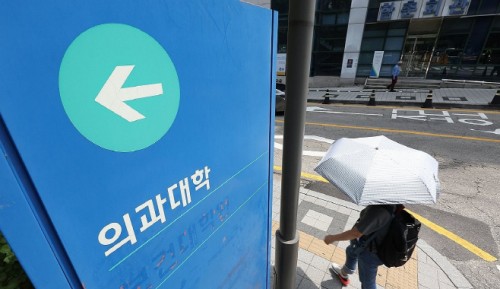 |
| As the government and the education sector discuss plans to normalize medical education, presidents of medical schools have decided to formally request that the government allow fourth-year medical students to take an additional national licensing exam. / Source: Yonhap News |
South Korea’s Ministry of Education has abruptly canceled the scheduled July 24 announcement of its plan to normalize medical school education, citing unresolved differences among universities regarding how to handle returning students.
In a notice sent to reporters at 8:30 p.m. on July 23, the ministry stated, “Tomorrow’s 11 a.m. briefing on medical student reinstatement and academic operations has been canceled. Further discussion is needed among the universities.”
The now-canceled briefing was to be led by Vice Education Minister Choi Eun-ok, along with Yang Oh-bong (president of Jeonbuk National University), Lee Hae-woo (president of Dong-A University), and Lee Jong-tae (chairman of the Korean Association of Medical Colleges, KAMC). The event was expected to outline a roadmap for the return of students and key academic policy changes.
Despite last-minute coordination between the government and universities, a consensus could not be reached. The core dispute centers on the graduation timeline for third-year medical students.
The Council of University Presidents for Medical School Reform (referred to as “UCP-Med”) recently proposed that returning students be uniformly treated as having failed the first semester, allowed to resume in the second semester, and that fourth-year students graduate next August—so-called “Cosmos Graduation”—and be given an additional opportunity to sit for the national medical licensing exam.
However, schools differ on the feasibility of implementing this framework, particularly for third-year students. While universities generally want to maintain autonomy, they have also asked the ministry for clearer guidelines.
Earlier that morning, the KAMC proposed a compromise through a survey-based internal consultation. The plan suggested setting graduation timelines at May 2026 for fourth-years and May 2027 for third-years, to avoid delays in national exams and the internship-residency pipeline. However, the ministry appears to have withheld endorsement due to concerns the proposal could be perceived as granting unfair advantages.
In a related development, the Korean Medical Association also canceled its regular briefing on healthcare issues, which had been scheduled for July 24.
Most Read
-
1
-
2
-
3
-
4
-
5
-
6
-
7





















